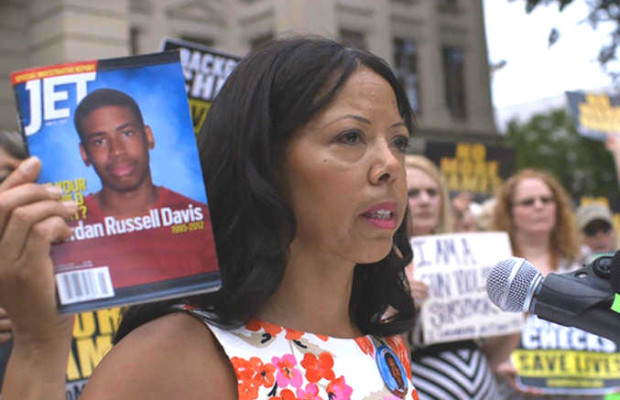Restoring America to ‘One Nation Under God’
By Lucia McBath
One of the saddest truths that the Charleston tragedy taught us is that even in our faith, African Americans still aren’t safe. Coming together in God’s house provides no haven from bigotry and evil. Just as in the Birmingham attack on 16th Street Baptist Church in 1963, the shooting at Emmanuel African Methodist Episcopal church reminded us that for those who don’t honor God’s words and teachings, there are no sacred places.
Today, America is presented with the task of confronting an increasingly negative shift in perceptions of Black men. After all the political, social and economic gains Blacks achieved from the Civil Rights Movement, in many ways we have returned to an era in which the cry of the oppressed was “We Shall Overcome.” Today’s synonymous call is “Black Lives Matter.” How is it the hands of time have been rolled back against a race of people that are so intricately woven into the very fabric of this nation?
In November 2012, I lost my only son, Jordan, due to the inability of a man with a gun to see the value of a child of God only because of the color of his skin. Ironically as I observed pictures of the shooter’s get-away car during our courtroom drama, I was incensed to notice the symbolic “fish” on the rear of his car. And yet, many of those that we live among daily harbor the same loathing, mistrust and fear of Black men.
The story of that brief and fatal encounter is told in the award-winning film 3 ½ Minutes Ten Bullets, which aired on HBO last month and is currently screening in cities around the nation. In this deftly woven portrayal, what is made clear is that white America is a nation that calls itself one nation undivided, but in truth is a country that acts out of implicit bias towards people of color.
When men can place great faith and trust in their guns as a way to silence the voices of a race of people they choose to ignore, are we still “one nation under God?” How have we fallen so far from the righteous path?
The Biblical precepts of faith and respect for humanity are essential in our effort to tear down the strongholds of fear and prejudice that hover over this nation. The Bible teaches us that we are to love the stranger: for we are all strangers to this land. We all know the history of America as a nation of immigrants from every corner of the globe. But these days that history and that religion are too often lost.
Instead, everyday we witness another incident where guns, violence, race and faith have become a devastating cocktail. And instead of enacting laws that reinforce our faith and bring us closer together, legislation like Stand Your Ground laws, some version of which exist in 30 states, seems to do more to move us further away from the freedoms of love and acceptance for one another.
America can only change its perception of Black people through the exorcism of our hearts. Changing the conscience begins with pressing the legal and justice systems to remain accountable for enacting civil laws and regulations that protect the rights of Black people to exist freely in this country. Our society must be willing to confront systemic injustice in its various forms and call out those that “come in sheep’s clothing.” Likewise, without bloodshed and violence Black America must be willing to righteously defend our right to live equally and justly under the law of the land. And, this law of the land to which all other laws must succumb to is the Word of God.
In the book of John, Jesus says, “This is my commandment, that ye love one another, as I have loved you.” Likewise, “In God we trust” has always been the call for Americans to co-exist. But, the unethical resurgence of fear and violence towards Black men and communities of color that America is currently experiencing is a direct contradiction to the Word of God.
The callous disregard of life that we are witnessing begs the question, what God do we serve? It is a question that challenges us as a society to unite in faith and re-capture our national sense of identity and self-respect.
This essay is part of the “Shifting Perceptions: Being Black in America” series commissioned by Perception Institute.


